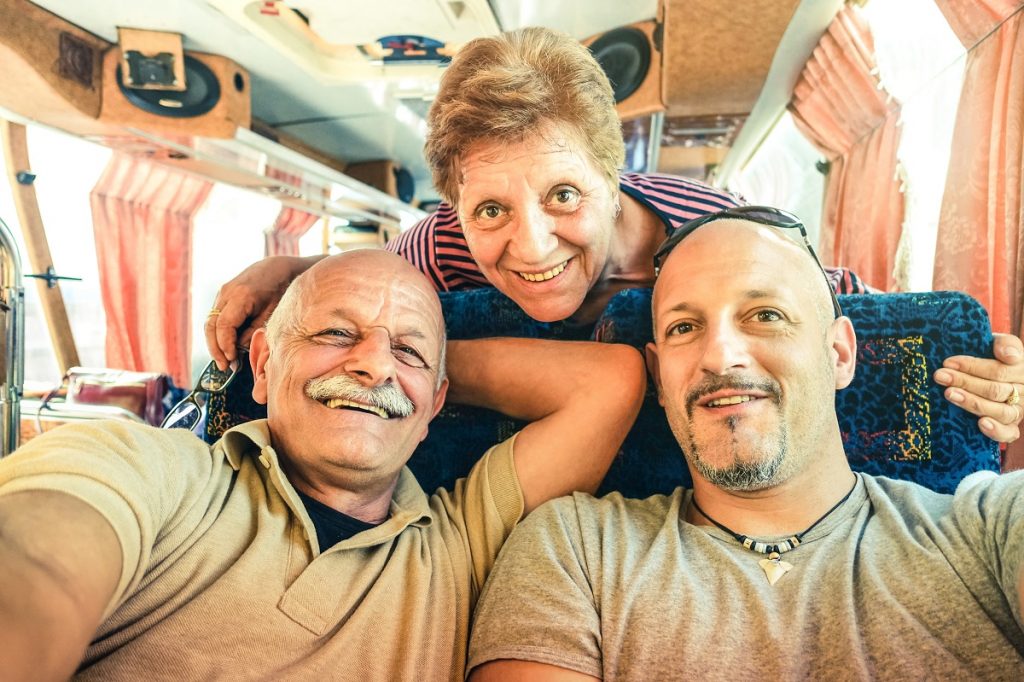As we age, we gradually shed members of our social circle, which can significantly affect our physical and mental health. This is especially true for seniors who are experiencing loneliness amid physical distancing measures because of the COVID-19 pandemic. Loss of social support can result in situations where seniors are vulnerable to poor health outcomes and emotional distress.
Social connection for older adults plays a critical role in their physical, mental, and emotional health. Those with a stronger social network tend to enjoy a better quality of life and superior health and well-being.
In senior care communities, one of their primary goals is to establish social experiences for senior residents. Caregiving staff and home health aides form a healthy community for seniors where they experience various opportunities to reduce loneliness, enjoy meaningful social interactions, and experience optimum health.
Older adults are at risk of isolation and depression, and interventions are necessary to promote social connectedness and positive health outcomes. Fortunately, there are ways to help seniors experience social connectedness through sharing, friendship, and happiness in a community. So if you have a senior loved one at home or caring for a senior, here are the benefits of social connections among older adults.
Better health outcomes
Socializing plays an important role in communities in terms of improving health and well-being. As people grow older, they are more prone to social isolation, especially ages over 65. These people are confronted with movement limitations, such as declining mobility, poor eyesight, and loss of driving skills. Thus, these health issues can be increasingly tough for older adults to maintain relationships and create new ones.
Seniors who are often alone and lonely are likely to suffer from severe stress, loss of self-esteem, anxiety, depression, and other mental health issues.
Daily conversations are increasingly important as people age. For seniors, talking to someone for a few minutes can make a difference in their overall physical health. This can be possible if family members, nurses, caregivers, and doctors take the time to engage in social interactions with older adults.
Study shows that maintaining high levels of social engagement has a significant link to the cognitive and physical health of older adults. This shows that a senior with a stronger sense of community and belonging is likely to experience lower chances of illness and death. In fact, seniors who have healthy relationships have a 50% increased chance of survival.
Sense of belongingness

Seniors who stay socially connected have a stronger sense of belonging, which leads to better physical, emotional, and mental health. Social communities that allow seniors to feel belonged and confident about themselves are less prone to doubt their belief and faith, thus promoting healthy spiritual health.
Research found that having a sense of belonging has a direct correlation to senior’s perceived health. Seniors who have a strong community support system are more likely to experience better health and wellness than those with poor community ties.
Believe it or not, talking to a total stranger can drive seniors to develop a sense of belongingness and community. Studies show that striking up conversations with anyone, whether in the grocery or public transportation, has a positive impact on overall well-being instead of just doing mundane tasks and being left alone.
Helping seniors connect with their families and peers also decreases their risk of abuse. It also lessens the likelihood of neglect, scams, and financial fraud. Meanwhile, those who have limited social connections and in isolation are more prone to domestic, emotional, and physical abuse.
Generally, everyone needs to stay connected and socially engaged at any life stage, but for seniors, socialization is just as essential as taking prescription medicines. So, if there are seniors in your community or you’re living with a senior loved one, make sure to talk to them, since you’ll never know who needs a little chat.
Increased cognitive ability
Cognitive decline is a widespread issue among older adults. Dementia and cognitive impairment have various causes, such as endocrine and metabolic derangements, medication side effects, and delirium.
Just like talking to strangers, doing mind games such as crosswords and chess can be a great brain exercise. There are plenty of studies that prove older adults with frequent social activity are less likely to experience cognitive decline than those with lower social activity.
Aside from board games, allowing seniors to share stories and recollect memories offers cognitive benefits as well. Through storytelling, seniors can look back and understand their goals and achievements that made their lives fulfilling. Doing this often will improve their self-esteem by allowing them to control their memory and recall abilities.
While seniors love spending time alone, they also need social interactions now and then to prevent feelings of loneliness and isolation. So if you have a senior loved one at home, keep in mind that it takes a team effort to ensure seniors receive the best quality mental and physical care. This way, they remain mentally and physically healthier and experience better social connections.




